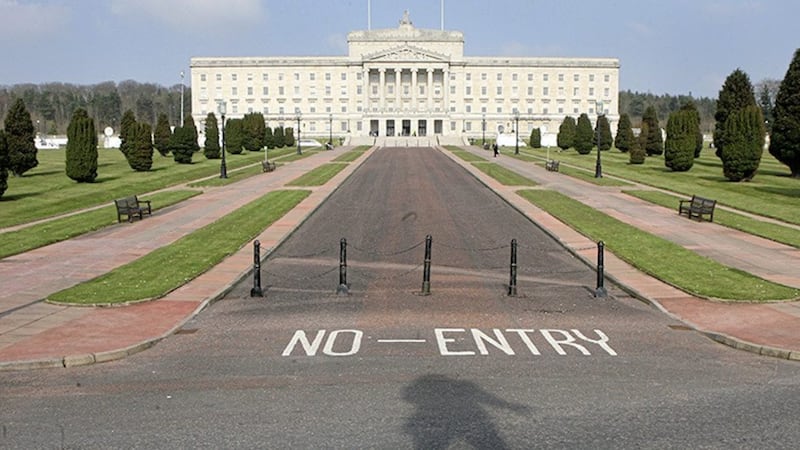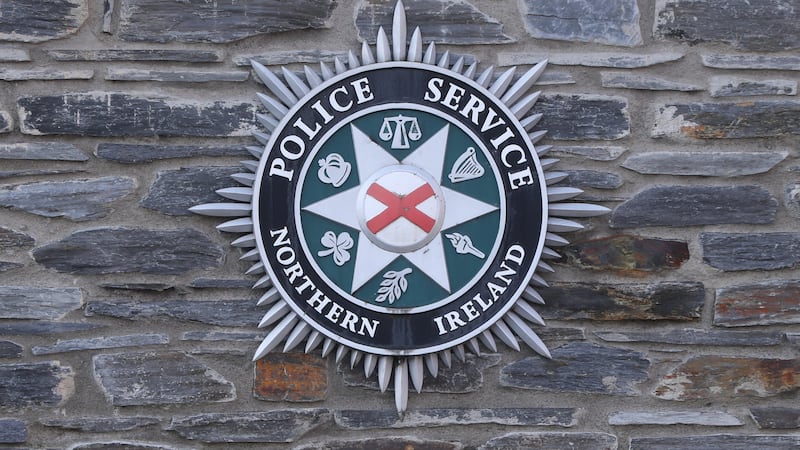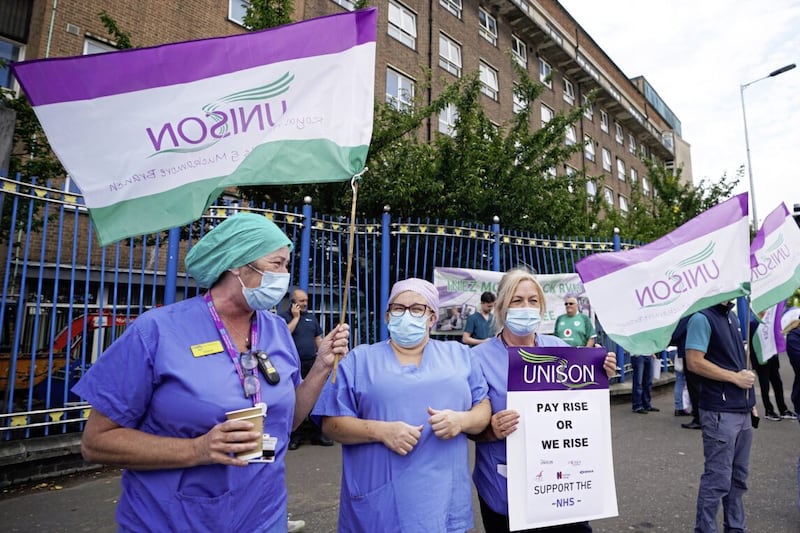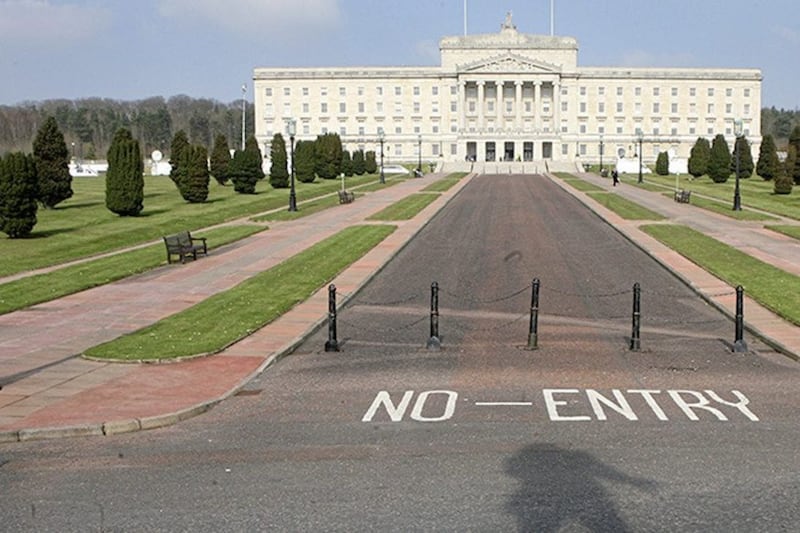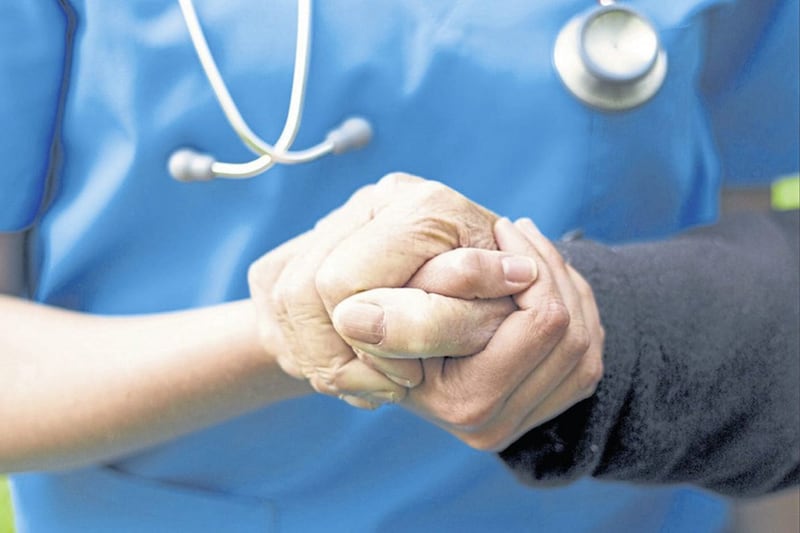DOCTORS and nursing leaders have issued a joint call for the restoration of devolved government to address the "deepening crisis in healthcare".
Ahead of fresh talks between the Stormont parties and strike action by unions this week, the bodies representing thousands of medical and nursing professionals said the "severity of the situation" has led to their unusual step.
Nurses and healthcare workers belonging to the Royal College of Nursing (RCN), Unison, Unite and Nipsa will walk out on Wednesday, in an escalation of a campaign of industrial action over pay and staffing which has hit services this month
The Health and Social Care Board said it expects "significant disruption to a wide range of social care and community services, for example, social work cover, day centres, older person's services, and children's services" this week.
In a statement today, the British Medical Association, Royal College of Emergency Medicine, Royal College of Surgeons of England, Royal College of General Practitioners, the RCN, Royal College of Psychiatrists, the Royal College of Radiologists UK and the Northern Ireland board of the Royal College of Anaesthetists denounced the "unacceptable" and "precarious" state of the north's health and social care system.
They called for "decisive action and political leadership to end the current gridlock".
"Problems in our health care system have been building for many years... To reform our health service we need political leadership and sustainable long-term planning with decisions being made by locally elected politicians operating from Stormont.
"We need this now - patients cannot be forced to wait any longer for the healthcare they need."
The medics say "additional sustained investment" is needed to reduce waiting lists and "other escalating pressures" and "a full and frank debate on budgetary priorities across our public services".
"Staff throughout the service are working above and beyond on a regular basis to ensure patients are being treated and cared for safely and appropriately but they feel they are at breaking point.
"Political inactivity over the last three years has contributed to this crisis. Although it is not the sole cause, the lack of an accountable health minister has resulted in decisions being deferred (and) blame passed around."
The leaders said their members "see the reality of this fractured system every day and watch patients suffer".
"As a society we must do better."
The public statement comes as it was announced midwives and maternity support workers (MSWs) are also to be balloted on industrial action up to and including strike in the new year.
The Royal College of Midwives ballot opens on January 6 and close on January 29, with the result announced the same day.
It said the decision follows "nine years of pay restraint which has seen... a real terms pay cut", with midwives in Northern Ireland now earning up to £2,000 less than their colleagues in England, and a wider gap with Scotland counterparts.
Director Karen Murray said they had been left "with no other option" after the Department of Health "failed to agree a fair and decent pay agreement for our members" despite long-running talks.
"Midwives and MSWs in Northern Ireland work incredibly hard to ensure women and their families get safe and high-quality care," she said.
"By paying them less than their colleagues in the rest of GB, the people running our services are taking advantage of their massive contribution, dedication and commitment.
"Demoralised, over-stretched and undervalued staff cannot give the quality of care that women and babies deserve."
She said they "remain open" to negotiations but as with other health service unions, indicated that "pay parity with the rest of the UK" was its red line.
